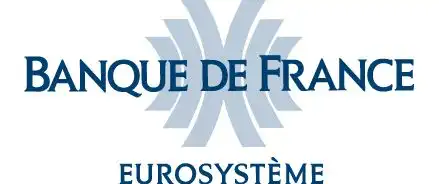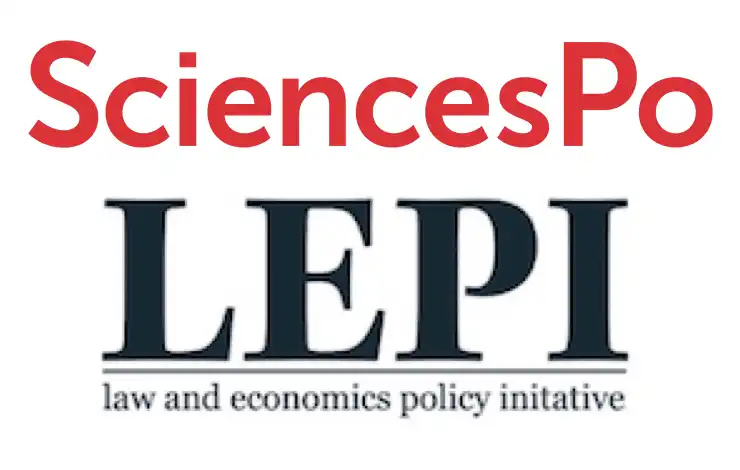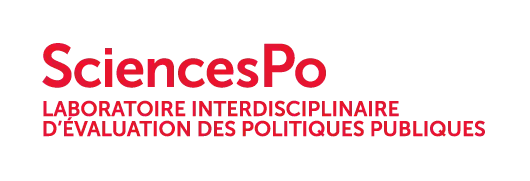
Home>About us>Our Partners
Our Partners
In a very short time, the Department of Economics has forged important partnerships in order to further research in the field of economics.
INSTITUTIONAL PARTNERSHIPS FOR RESEARCH AND INNOVATION

The Centre national de la recherche scientifique (National Center for Scientific Research) is a public organisation under the responsibility of the French Ministry of Education and Research – it is a powerful motor for innovative research and the biggest fundamental research organisation in Europe.
The Department of Economics became a CNRS Joint Laboratory (“UMR” – Unité Mixte de Recherche) in January 2016. In awarding the Department of Economics the status of “UMR”, the CNRS recognizes the formidable dynamism, academic excellence and cutting edge research that have driven the Department - in less than 6 years! - to the educational forefront of economics in France and Europe.

The Banque de France and the Department of Economics have forged a scientific partnership related to common research projects, academic exchanges and the organization of joint conferences. We are particularly grateful for the Banque de France’s indefectible support which has allowed us to become one of the most promising and dynamic economics departments in France and in Europe.
This institutional partnership focuses on five fields of study:
- International trade and macroeconomics;
- Evaluation of public policies;
- Monetary policy and the banking system;
- Labour economics;
- Micro-econometric methodology.
Our partnership has enabled us to recruit permanent faculty members, to welcome stellar visiting professors and researchers, to develop our research and to initiate innovate teaching projects in economics. It has contributed notably towards:
- The enrichment of the Department’s areas of expertise and the diversification of our faculty;
- The organization of a monthly research seminar “Banks and the Financial System: What Regulation?” which facilitates exchanges between researchers and practitioners looking to develop an efficient global regulatory system;
- Our participation in the development and deployment of teaching projects such as core-econ.org that aims to innovate and renew the teaching of economics.
Our triennial partnership with the Banque de France was first signed in January 2012 and it has been renewed twice since then, in 2015 and in 2018. It is coordinated by the Department’s permanent faculty member Stéphane Guibaud and by Jean-Stéphane Mésonnier (DEMS) for the Banque de France.

The CORE Project, spearheaded by the Institute for New Economic Thinking (Oxford Martin School), sets out to turn upside down the way economics is taught to undergraduates by “total(ly) re-think(ing)… the economics syllabus and teaching methods” (Wendy Carlin, director of the INET CORE curriculum).
The project is in perfect alignment with Sciences Po’s Department of Economics own goals and realisations, notably at the undergraduate level, since its inception in 2009. Precursor in piloting a fundamentally new approach to the manner in which economics is taught, Sciences Po was quick to answer the CORE Project’s call for institutional partners.
This has resulted in the creation of a unique, free, open-access course online – “The Economy” at core-econ.org
The course aims to answer 5 questions, without shirking complexity, new ideas, comprehensiveness, institutions, reflexivity and empiricism:
- What is economics about?
- Who are the main economic actors?
- What can markets do? (and what can they not do?)
- How can public policies improve economic performance?
- How do economists produce knowledge?
Sciences Po is one of CORE’s five institutional partners that span five continents and Yann Algan, faculty member of the Department of Economics, is a CORE curriculum material contributor.
The Department would like to express its gratitude for the generous support of the Banque de France, which has allowed it to be an essential player in the CORE Project.
In light of shifting global powers including the rise of authoritarian actors, and the questioning of multilateralism, the Anna-Maria and Stephen Kellen Foundation wishes to strengthen international cooperation and transatlantic dialogue and has chosen to support the Department's common venture with Columbia University - the Transatlantic Kellen Conference Series (read more).
The Series aims to promote constructive collaboration and engagement in transatlantic discussion on economic affairs, highlighting the central role of strong transatlantic relations in meeting global challenges and navigating the vast economic challenges that define the contemporary moment.
The Transatlantic Kellen Conference Series’ ambition is also to make academic research more accessible and actionable by practitioners, and create a new dynamic of transatlantic exchange. The Series aims to confront the diverse approaches and ideas of academics and practitioners while shaping policy and solutions-oriented research.
The generosity of the Kellen Foundation also allows the Department to offer a number of scholarships to candidates admitted to our Master in Economics programme and to support our junior faculty members.
OTHER RESEARCH CENTRES

The LEPI is an interdisciplinary initiative created in 2020 involving the Department of Economics and the Law School at Sciences Po.
The discipline of law and economics, and its focus on the emergence of laws, on judicial decision making and on how laws structure economic activity, is experiencing a rapid shift due to the rise of big data, of large web based giants and of new challenges raised by climate change and increasing inequality. Such a shift raises numerous questions.
- Are our laws adequately addressing the new needs of our societies?
- How do we rethink competition law when players are growing larger and traditional measures of concentration no longer apply?
- Should we rethink the articulation between industrial and competition policy
- How can we use our economic tools and methods to assess and design rules and regulations?
- How does big data affect judicial decision making?
The LEPI will be a forum and will stimulate and disseminate research in this field, articulated around three main themes:
- Antitrust, Industrial and innovation policy in a new era
- Big data: consumer protection, predictive justice and use of data in sentencing
- Environmental challenges: rethinking law and economics
Founding members:
- Department of Economics: Roberto GALBIATI and Emeric HENRY
- School of Law: Katja LANGENBUCHER, Horatia MUIR WATT, and Dina WAKED

The Laboratory for Interdisciplinary Evaluation of Public Policies (LIEPP) is an interdisciplinary center of research on public policy evaluation.
The Department of Economics is one of the four founding centres of the LIEPP: Etienne Wasmer of the Department coordinated the original project that created it and that received substantial funding through the Agence nationale de la recherche's "Laboratoire d'excellence" (LABX) programme. He co-chaired the laboratory until late 2017.
Presently chaired by Bruno PALIER (CNRS, CEE) the LIEPP aims to evaluate various aspects of public policy through an innovative method based on multidisciplinarity and the comparison of qualitative, comparative, and quantitative analysis of the same policy.
The project brings together more than fifty researchers who belong to four research units of Sciences Po: the Centre d'études européennes (CEE), the Centre for Sociology of Organizations (CSO), the Center for Studies in Social Change (OSC), and the Department. Julia Cagé, permanent faculty member, co-directs the LIEPP's "Evaluation of Democracy" research group since 2018. The LIEPP is also the 'second' home for a number of the Department's PhD candidates or junior researchers.
L’Observatoire Français des Conjonctures Economiques (OFCE), the French Economic Observatory, is both a university research centre and an institution for forecasting and evaluating public policies. It brings together over 40 French and international researchers, including several internationally renowned research fellows.
